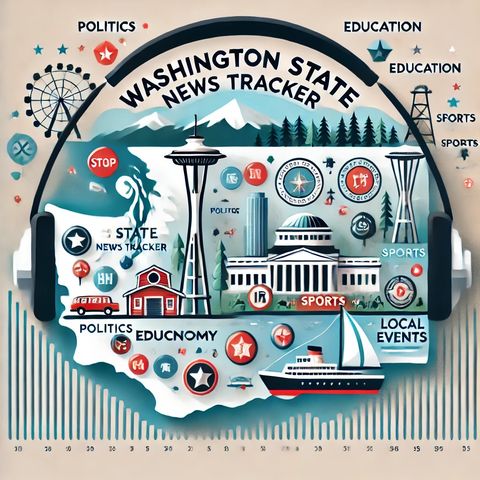Sustainable Solutions: Washington State Tackles Plastic Cup Pollution

Download and listen anywhere
Download your favorite episodes and enjoy them, wherever you are! Sign up or log in now to access offline listening.
Sustainable Solutions: Washington State Tackles Plastic Cup Pollution
This is an automatically generated transcript. Please note that complete accuracy is not guaranteed.
Description
Washington State, located in the Pacific Northwest region of the United States, has a diverse and evolving environmental landscape. Among the various environmental concerns that have cropped up in recent...
show moreIn response to the growing environmental impact of single-use plastics, Washington State has implemented measures to reduce their use and encourage recycling and reuse. One significant step came in 2020 when the state passed legislation banning single-use plastic bags at large retail and grocery stores. This move aimed to cut down on the waste that ends up in landfills and pollutes the environment, thus setting a precedent for future actions against other types of single-use plastics.
Plastic cups, which are commonly used in various settings including sports events, concerts, and cafes, contribute significantly to the state's plastic waste. Often made from materials that are not biodegradable, these cups can take hundreds of years to decompose, causing lasting damage to marine life and ecosystems. Recognizing these issues, local governments within Washington State have begun to adopt stricter waste management and recycling protocols to handle plastic waste more effectively.
Communities across Washington State are also encouraged to participate in recycling programs and are educated about the impacts of plastic pollution on the environment. For instance, cities like Seattle have implemented composting and recycling programs that help divert waste from landfills. Educational campaigns focusing on reducing plastic use and promoting alternatives such as reusable cups and containers have gained traction throughout the state.
Moreover, Washington State's research institutions and environmental groups play a crucial role in addressing the issue of plastic pollution. Universities and nonprofit organizations conduct research on the environmental impacts of plastics, develop innovative alternatives, and collaborate on public awareness campaigns. These efforts are essential in shifting public behaviors and informing policy decisions.
Understanding the need for a broader legislative approach, there may be potential future state-wide initiatives aimed at banning or limiting the use of single-use plastic cups and other plastic products. As seen with the statewide ban on plastic bags, such initiatives could lead to significant reductions in plastic waste and its associated environmental impacts.
In summary, Washington State's approach to managing the environmental impact of plastic cups and other single-use plastics involves a combination of legislation, community engagement, and innovation. By continuing to champion these efforts, Washington aims to preserve its natural landscapes and urban environments for future generations, making it a leader in environmental conservation and sustainability practices.
Information
| Author | QP-4 |
| Organization | William Corbin |
| Website | - |
| Tags |
Copyright 2024 - Spreaker Inc. an iHeartMedia Company
